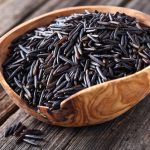
♦ Monacolin K is a key active in red yeast rice.
♦ It has an EFSA 13.1 health claim and is part of an Article 14 claim.
♦ Safety concerns still to be resolved following warnings from French Agency, ANSES.
Traditional Uses
In Asia, red yeast rice is also known as ‘angkak‘ where it is a food supplement and preservative, and a food colouring. In China, it was added to beverages as a colouring where it was called ‘anchu‘ and a critical component in rice wine production. In the Phillippines, it is added to alcoholic beverages such as ‘anchu‘ and ‘somsu‘.
Health Claims
Monacolin K from Red Yeast Rice is now part of an accepted general function 13.1 EFSA health claim. Back in 2013, EFSA allowed the following claim:
‘Monacolin K from red yeast rice contributes to the maintenance of normal blood cholesterol levels’.
A disease risk factor reduction claim under Article 14 has also been authorised by EFSA in 2013 in combination with other ingredients. It states:
‘A combination of artichoke leaf dry extract standardised in caffeoylquinic acids, monacolin K in red yeast rice, sugar-cane derived policosanols, OPC from French maritime pine bark, garlic dry extract standardised in allicin, d-α-tocopheryl hydrogen succinate, riboflavin and inositol hexanicotinate reduces blood LDL-cholesterol concetrations. High LDL-cholesterol is a risk factor in the development of coronary heart disease.’
The claim specifically relates to red yeast wine which has traditionally been used in Chinese medicine where rice is fermented with the mold Monascus purpureas which also imparts an intense red colour. These pigments belong to the class of polyketides but the mold also produces an active metabolite being monacolin K which has been shown in plenty of clinical studies to act as a statin (a cholesterol lowering agent). It would serve as a natural alternative to a stain like lovastatin. The EFSA claim relates to both the consumption of purified monacolin K and to red yeast rice. The daily level recommended is 10mg Monacolin K.
Safety Concerns
There are safety issues with taking monacolin K. The French Agency for Food, Environmental and Occupational Health and Safety (ANSES) raised a warning on red yeast rice. There have been 25 cases of illness, mainly liver and muscle complaints, since 2009, associated with the rice. It has warned:
“The Agency considers that use of this kind of food supplement containing monacolins may expose consumers to a health risk – especially individuals who are particularly susceptible due to genetic predispositions , pathologies, ongoing treatments, etc. ANSES therefore recommends seeking medical advice before taking these products.”
The quality and dose level of monacolin from various sources is also disputed and there are complications in some of the reported cases where statins have also been taken as well. Statins themselves have raised long-standing health concerns with both food and pharmaceutical agencies. The safety aspect is still being resolved.
Suppliers
The company Sylvan Bio Europe through Gee Lawson (www.geelawson.com) supply a version of Red Yeast Wine for beverages where it can be used as a natural colour. An earlier post on Monascus purpureas covers the use of Monascus as a pigment in food stuffs.
Ref: http://www.efsa.europa.eu/en/efsajournal/pub/2304.htm



Leave a Reply